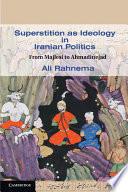
Field Notes from a Catastrophe
Climate Change - Is Time Running Out?
The world has known about global warming since the late 1970s, yet little has been done to halt it. The threat, if we fail, is nothing less than catastrophe - the flooding of coastal communities, the extinction of species and entry into a climate regime of which humans have no experience. Exploring the relationship between what we know and what we refuse to know, Elizabeth Kolbert takes us on an urgent journey from the Arctic to Central America, interviewing researchers, environmentalists and traditional Inuits whose lives have already been dramatically altered by climate change.
- ISBN 13 : 1408833360
- ISBN 10 : 9781408833360
- Judul : Field Notes from a Catastrophe
- Sub Judul : Climate Change - Is Time Running Out?
- Pengarang : Elizabeth Kolbert,
- Kategori : Political Science
- Penerbit : Bloomsbury Publishing
- Bahasa : en
- Tahun : 2012
- Halaman : 240
- Halaman : 240
- Google Book : http://books.google.com/books?id=OgtPyuRuIl4C&dq=inpublisher:Bloomsbury&hl=&source=gbs_api
-
Ketersediaan :
Exploring the relationship between what we know and what we refuse to know, Elizabeth Kolbert takes us on an urgent journey from the Arctic to Central America, interviewing researchers, environmentalists and traditional Inuits whose lives ...









